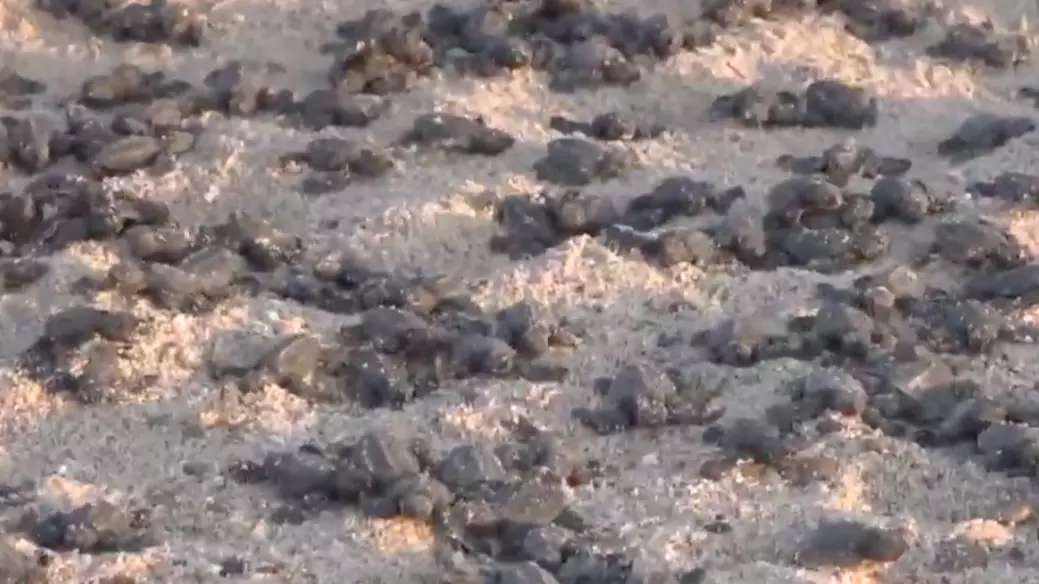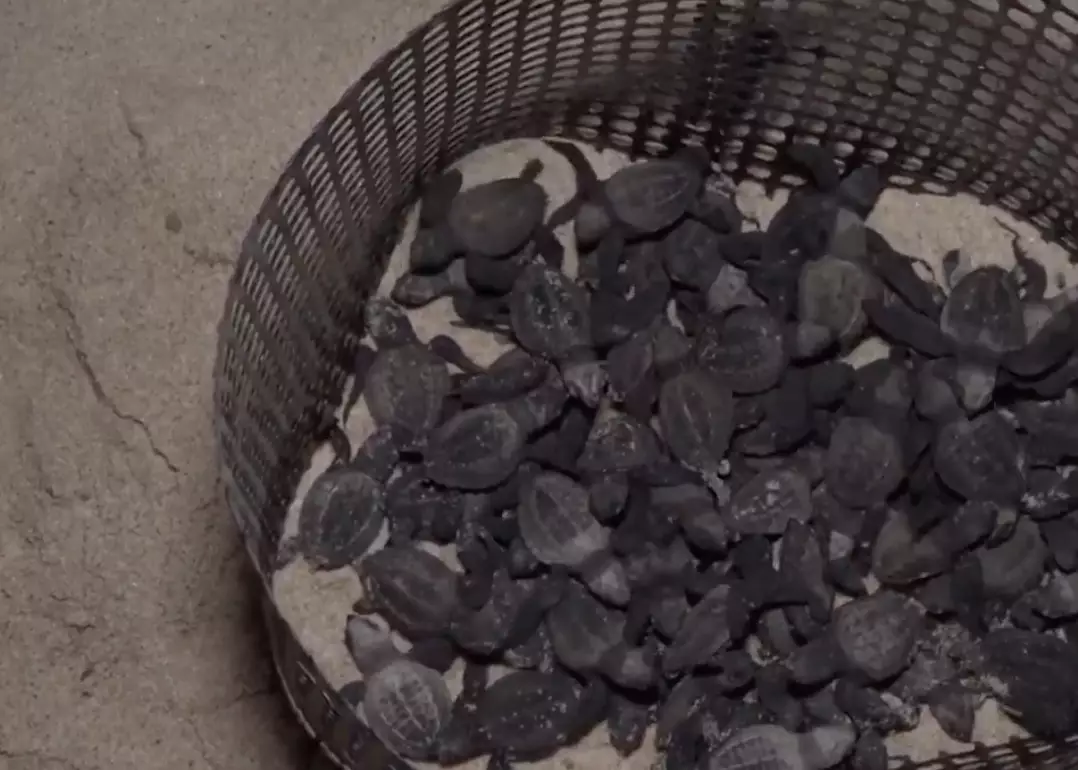
A record number of olive ridley sea turtles have been released in Mexico.
Researchers estimate around 2,250 turtle eggs were able to hatch into the Gulf of California, thanks to reduced human activity. The average number of eggs that hatch is between 500 to 1,000 - so this is a massive increase.
These little creatures are usually killed due to a litany of factors like being hit by boats, ocean pollution, and tourists invading their spaces.
Advert
Thanks to the coronavirus, there are less ways for these turtles to die and they've seen an explosion in numbers.

Tortugueros del Desemboque, a conversation group among the Comcáac, were the people who helped make this incredible moment happen.
Group coordinator Mayra Estrella Astorga told Arizona Public Media: "This year has been one of the hardest for our community. The pandemic brought sickness and death to our people, and complicated the economic situation here.
Advert
"That's why we are so happy that, in the middle of this tragedy, this miracle of nature happened - as a result of fewer fishing boats and tourists, but also through the efforts of the community."
The olive ridley turtle is also commonly known as the Pacific ridley sea turtle, because it's found in the warm waters of the Pacific, Indian and Atlantic Oceans. It typically lays its eggs on the beaches of a various Mexican states between May and September.
It is one of the smallest of its kind and gets its name from the olive green colour of its heart-shaped shell.
Olive ridley turtles are classed as 'vulnerable' and currently reside on the International Union for Conservation's Red list, despite the fact it's abundant compared to other sea turtles. The US also currently list the creature as 'threatened'.
Advert
Their 'vulnerable' status is due to the fact the turtle population has worryingly decreased by 50 per cent since the 1960s.
Mexico first banned the capture of sea turtles in 1990, and has fines in place for anybody who is caught hunting them. According to the WWF, the creatures are still under threat from crimes including poaching despite various countries having laws in place to protect them.
Featured Image Credit: THE IMPARTIAL TV/YouTube